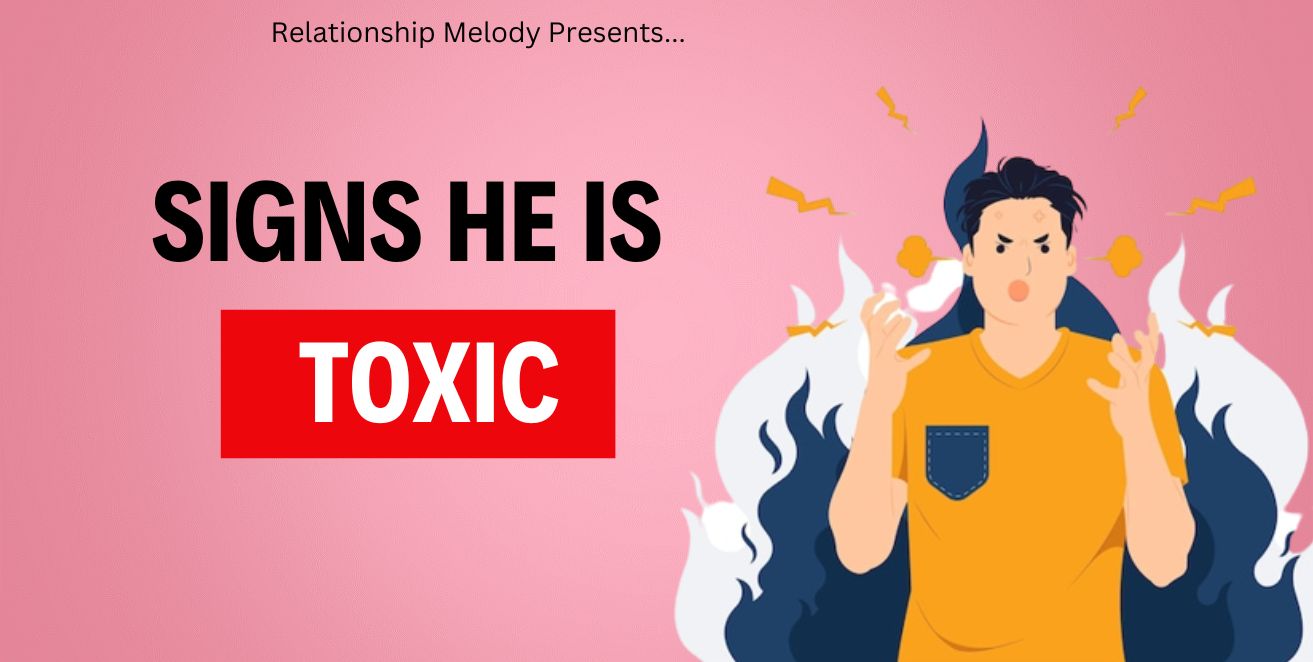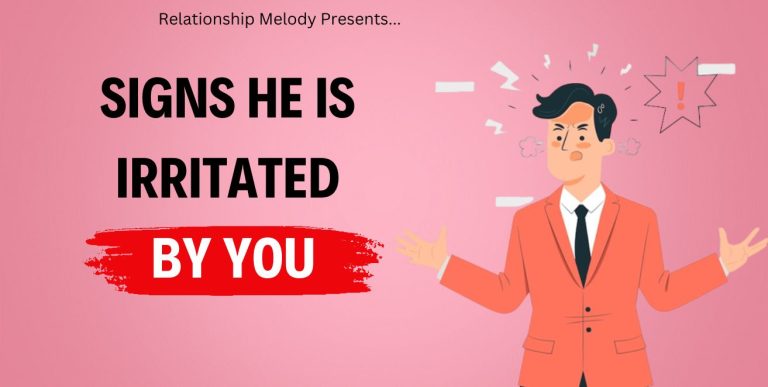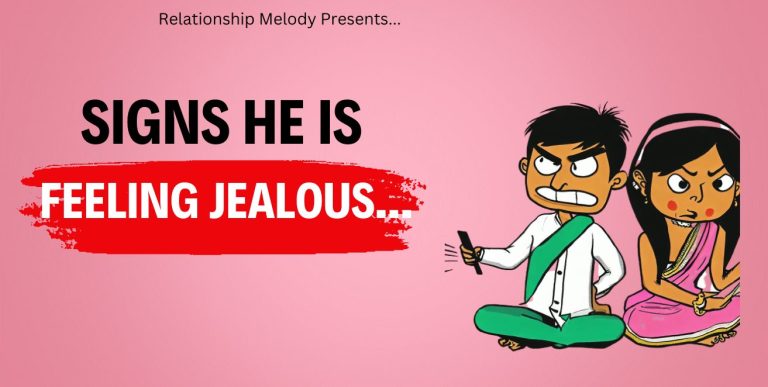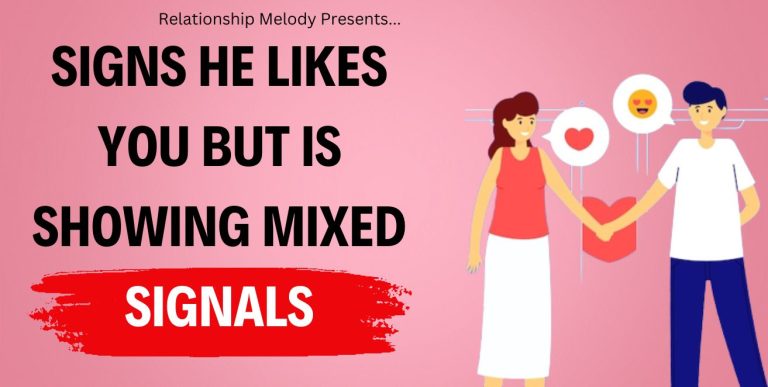25 Signs He Is Toxic
Entering into a new relationship can be exciting, but it’s essential to be mindful of the potential warning signs that your partner may be toxic. Toxic behaviour can gradually erode your self-esteem, mental well-being, and overall happiness.
By being aware of these signs, you can make informed decisions about your relationship and prioritize your emotional health. In this blog post, we will explore 25 key signs that indicate a toxic partner, helping you recognize and address these harmful behaviours early on.
25 Signs He Is Toxic
Here are 25 signs to know.
#1 Excessive Jealousy:
A toxic partner often displays extreme jealousy, becoming possessive and controlling over your time, interactions, and even friendships. They may constantly question your loyalty and act irrationally when you interact with others.
#2 Frequent Manipulation:
Toxic individuals excel at manipulating their partners to get what they want. They may use guilt, emotional blackmail, or gaslighting techniques to control and manipulate your thoughts, emotions, and actions.
#3 Lack of Respect:
A partner who consistently disrespects your boundaries, opinions, or feelings shows a toxic disregard for your autonomy and individuality. They may belittle or demean you, undermining your self-worth.
#4 Emotional Unavailability:
Being emotionally unavailable is a common trait in toxic partners. They may struggle to empathize or support you during challenging times, leaving you feeling isolated and unheard.
#5 Constant Criticism:
A toxic partner frequently criticizes your appearance, choices, or aspirations. They may intentionally undermine your confidence, making you doubt your abilities and value.
#6 Extreme Mood Swings:
Unpredictable mood swings are another red flag. A toxic partner may switch between extreme affection and hostility, leaving you feeling confused and constantly on edge.
#7 Isolating Behavior:
Toxic partners often isolate their significant others from friends and family, limiting your support network and making you solely dependent on them for validation and companionship.
#8 Blame Shifting:
Rather than taking responsibility for their actions, toxic individuals tend to shift the blame onto others. They may avoid accountability and manipulate situations to make you feel guilty for their mistakes.
#9 Constant Comparison:
A toxic partner may habitually compare you to others, making you feel inadequate or unworthy. This behaviour damages your self-esteem and undermines the foundation of a healthy relationship.
#10 Controlling Finances:
Taking control of your finances is a sign of a toxic partner’s desire for power and dominance. They may limit your access to money or manipulate financial decisions to maintain control over you.
#11 Excessive Criticism of Others:
Pay attention to how your partner speaks about and treats others. A toxic individual will often criticize and belittle people around them, revealing a lack of empathy and compassion.
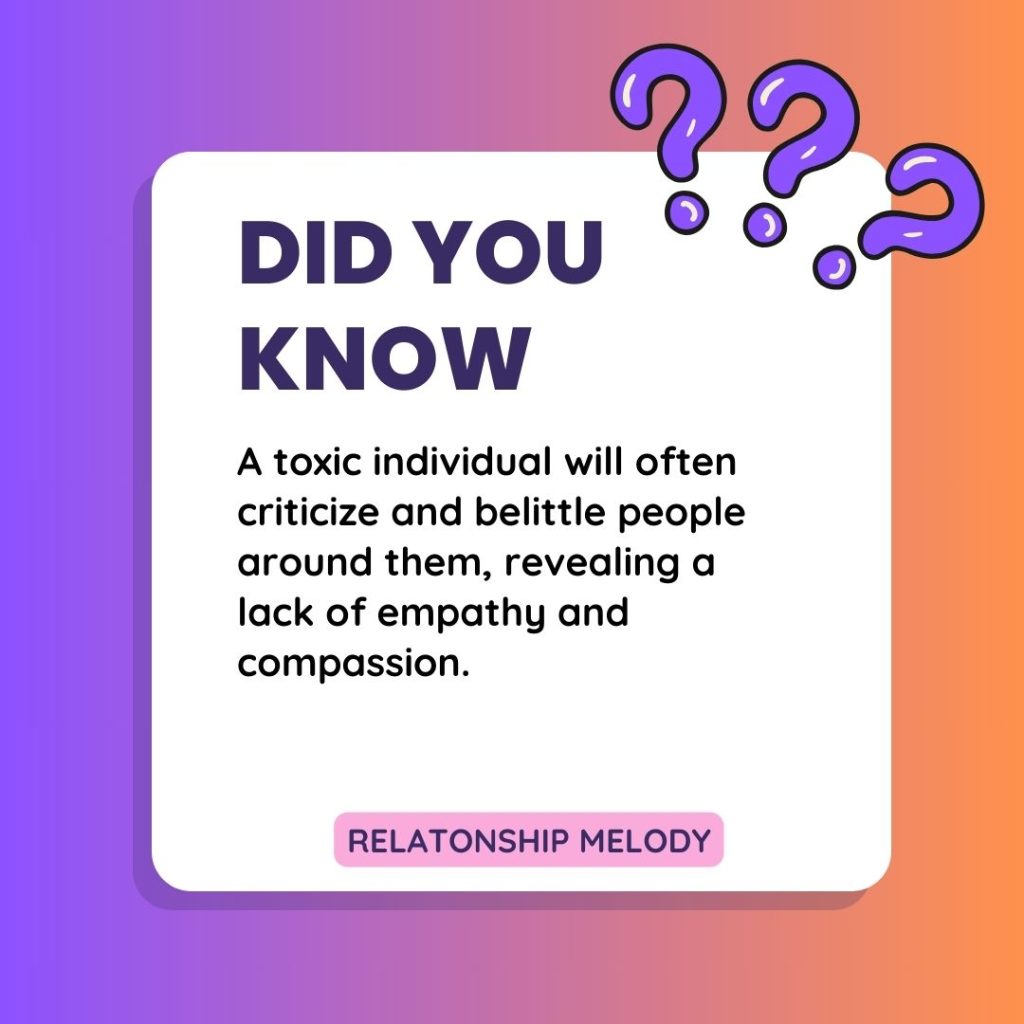
#12 Isolating You from Hobbies:
Toxic partners may discourage or actively prevent you from pursuing hobbies or interests that bring you joy. They aim to limit your individuality and independence.
#13 Gaslighting:
Gaslighting is a manipulative tactic employed by toxic individuals to make you question your sanity or perceptions. They may deny or distort events, making you doubt your memory and judgment.
#14 Emotional or Physical Abuse:
Any form of emotional, verbal, or physical abuse is a clear sign of toxicity. Such behaviours should never be tolerated in a healthy relationship and require immediate action and support.
#15 Lack of Support:
Toxic partners often fail to provide emotional or practical support when you need it most. They may dismiss your struggles or minimize your achievements, leaving you feeling invalidated.
#16 Excessive Control:
Controlling behaviour is a classic sign of a toxic partner. They may dictate how you dress, where you go, or who you spend time with, undermining your independence and freedom.
#17 Unpredictable Reactions:
Toxic individuals may react disproportionately to minor incidents, displaying anger or aggression that is out of proportion to the situation. This behaviour creates a constant state of fear and anxiety.
#18 Disregard for Consent:
Respecting boundaries and consent is crucial in any healthy relationship. If your partner consistently ignores or dismisses your consent, it is a clear indication of toxic behaviour.
#19 Emotional Blackmail:
Toxic partners often resort to emotional blackmail as a means of control. They may threaten self-harm, suicide, or abandonment to manipulate your actions and decisions.
#20 Lack of Empathy:
Empathy is a cornerstone of healthy relationships. A toxic partner may consistently disregard or dismiss your emotions, displaying a lack of empathy and understanding.
#21 Invasion of Privacy:
A toxic partner may invade your privacy by going through your personal belongings, monitoring your online activities, or demanding access to your accounts without your consent.
#22 Cycle of Apologies and Repeated Mistakes:
Toxic partners may apologize profusely for their behaviour, only to repeat the same mistakes shortly afterwards. This cycle of apology and repetition creates a toxic and exhausting pattern.
#23 Unwillingness to Compromise:
Healthy relationships require compromise and mutual respect. If your partner consistently refuses to compromise or insists on having their way, it is a sign of toxic behaviour.
#24 Dismissing Your Concerns:
Toxic individuals often dismiss or trivialize your concerns, making you feel like your feelings are unimportant or invalid. This behaviour undermines open communication and mutual respect.
#25 Lack of Personal Growth:
Toxic partners rarely exhibit personal growth or take responsibility for their actions. They may resist therapy or personal development, hindering the possibility of positive change.
Read more: Signs He Is Tired Of The Marriage.
Conclusion:
Identifying toxic behaviour in a partner is the first step towards creating a healthier and happier life for yourself. It’s important to remember that no one deserves to be in a toxic relationship, and you have the right to prioritize your well-being.
If you have noticed several of the signs mentioned in this blog post within your relationship, it may be time to evaluate whether the partnership is truly serving your best interests.
It can be challenging to confront and address these issues, but seeking support from trusted friends, family, or professionals can provide valuable guidance and perspective.
Remember, you deserve love, respect, and happiness. Don’t settle for anything less. Surround yourself with people who uplift and support you, and don’t hesitate to walk away from a toxic relationship if it becomes necessary for your personal growth and well-being.
Liked Our Article?
Our Patreon link: https://www.patreon.com/RelationshipMelody

Welcome to Relationship Melody! Our website is dedicated to all things on relationships, dating, and love! We are passionate about helping you navigate the ups and downs of love, and our goal is to provide you with valuable insights and information that will make your journey toward a fulfilling relationship smoother and more enjoyable.

